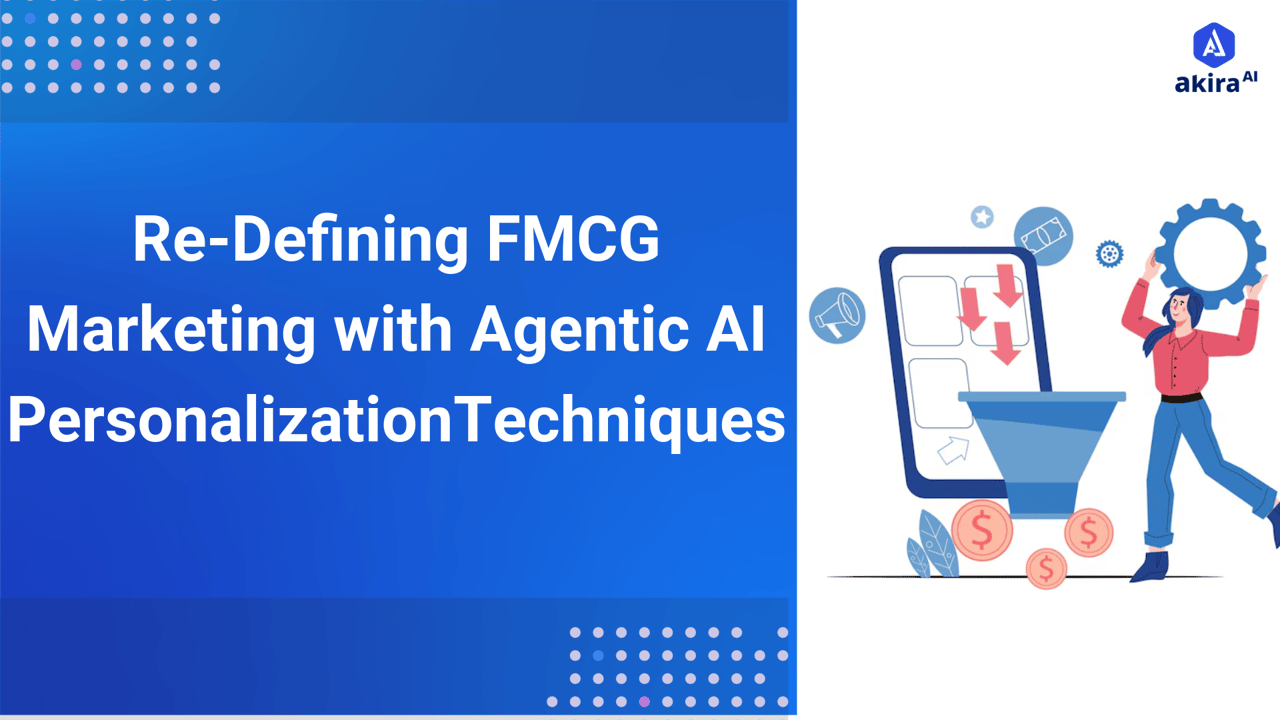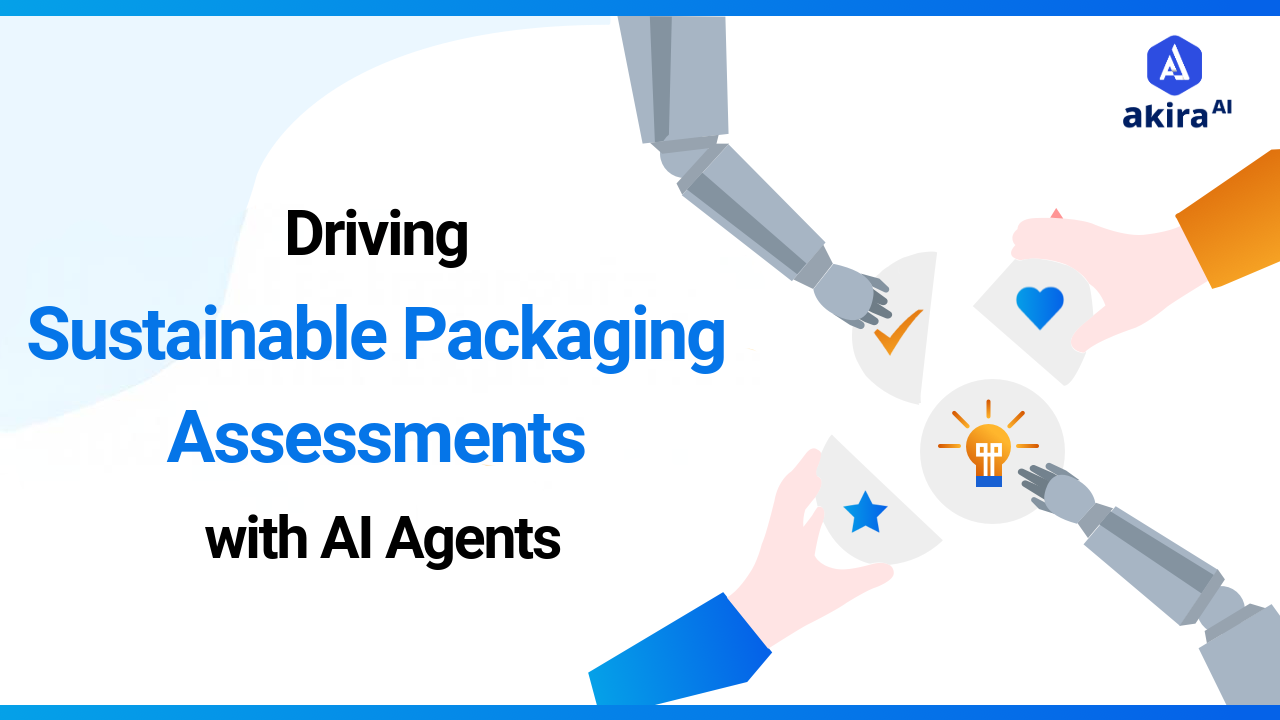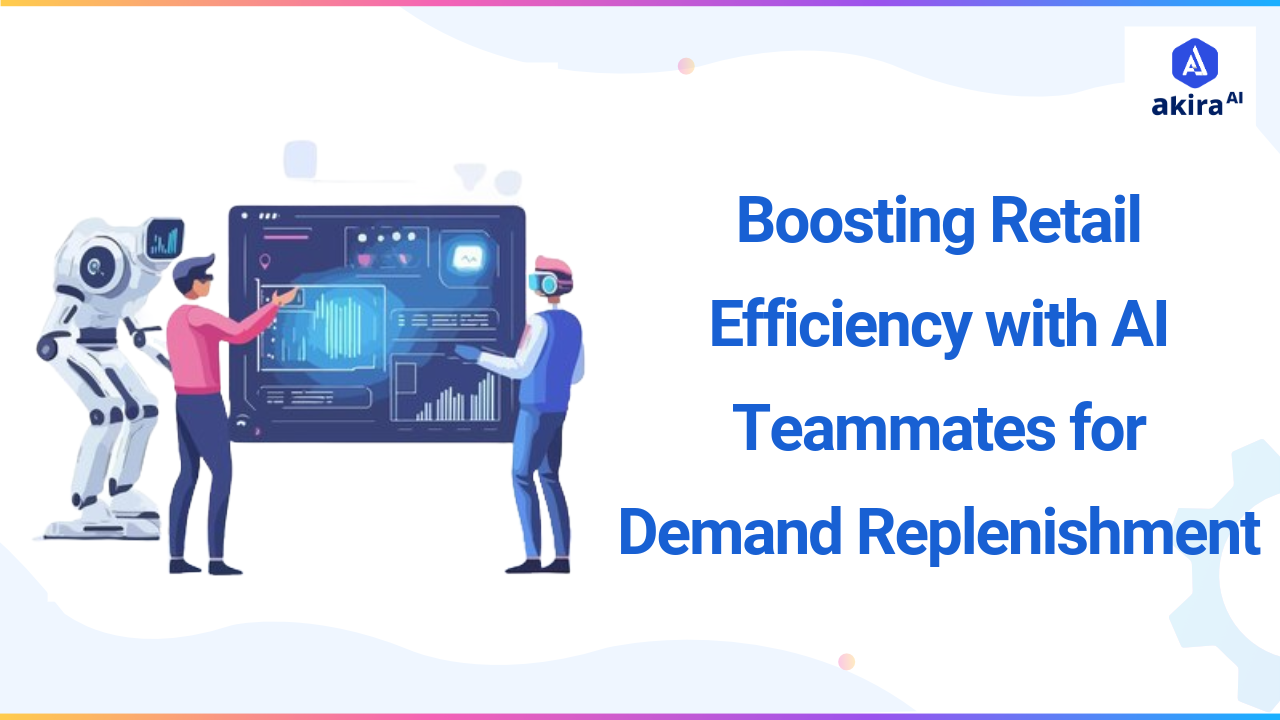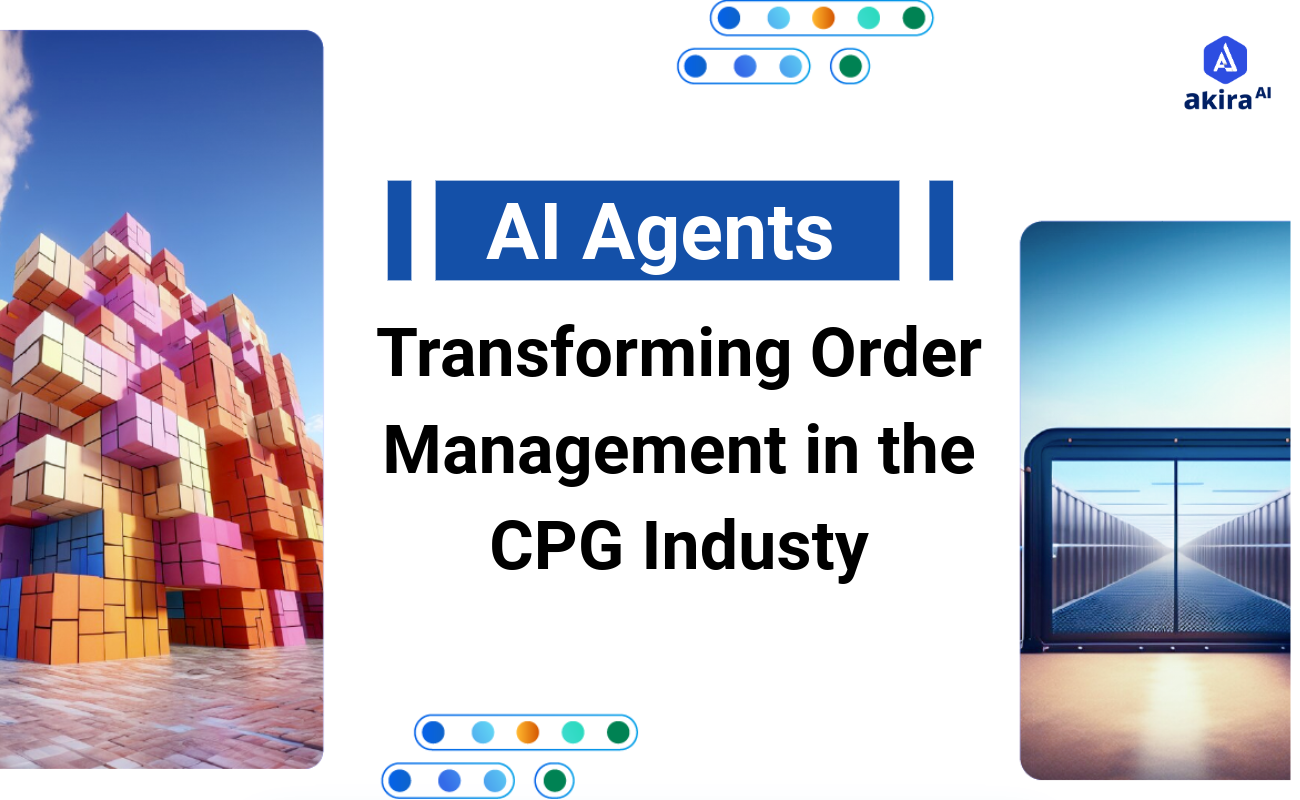Key Insights
-
AI Agents is revolutionizing FMCG marketing by enabling hyper-targeted, real-time personalized campaigns that drive customer engagement and conversions.
-
Traditional marketing methods struggle with timely personalization, while AI-driven systems offer agility, efficiency, and improved customer loyalty.
-
Companies like L'Oréal, Sephora, and Ulta Beauty are leading the way in Agentic AI-driven personalization, offering real-time adaptations and enhancing the customer experience.

Have you ever wondered how brands always seem to know exactly what you need, sometimes even before you do? That’s the magic of agentic AI-powered personalized marketing campaigns. In the FMCG world, these cutting-edge AI systems analyze consumer behaviour in real-time, allowing brands to connect with their customers in a personal and relevant way.
By leveraging AI agents, companies can craft hyper-targeted content and offer that truly resonate. In this blog, we’ll dive deep into how these agents transform the marketing space, make campaigns more effective, and provide the tools to engage customers like never before.
What are Personalized Marketing Campaigns in FMCG?
Personalized marketing campaigns refer to the practice of using customer data to tailor marketing messages and promotions to individual consumer needs and behaviours. Personalization is critical in the FMCG sector, where products are purchased frequently and have short lifecycles. Brands in FMCG need to understand consumer behaviour, preferences, purchase history, and demographic details to craft marketing strategies that speak directly to their target audience.
By leveraging personalization, brands can enhance engagement, improve customer loyalty, and increase conversion rates. In the FMCG industry, the key to success is understanding how and when consumers make purchasing decisions. Since personalized marketing delivers such timely information, companies are ready to leverage these insights and change strategies as needed to achieve better customer engagement and, ultimately, increased sales.
Key Concepts of Personalized Marketing
Consumer Insights: Personalized marketing is deeply rooted in analyzing consumer insights. These insights are gathered from various sources like online behavior, purchasing patterns, and behavioral data analysis.
Customer Segmentation: The segmentation of customers into specific groups based on factors like demographics, purchase history, and behavior helps in designing personalized marketing campaigns that resonate with each group. This segmentation allows for hyper-personalization, where customers receive content and offers specifically relevant to them.
Behavioral Targeting: Behavioral data analysis ensures that the right message reaches the right consumer at the right time. Whether it's through email personalization, targeted ads, or custom video messages, each interaction is designed to influence purchasing decisions.
Omnichannel Marketing Strategy: Personalization is not confined to one channel. An omnichannel marketing strategy ensures that consumers experience the same personalized marketing messages across multiple touchpoints—be it through digital marketing campaigns, email, or in-store promotions.
Traditional Way of Automating Personalized Marketing Campaigns
Traditionally, personalized marketing in the FMCG industry has been managed through manual processes, such as using Customer Relationship Management (CRM) systems to segment audiences. This process usually involved creating static marketing lists and manually crafting targeted messages. The marketing automation systems were rule-based, relying on predefined workflows to send emails or ads.
While automation helped brands streamline communication, it often lacked the agility and responsiveness needed to keep up with the fast-changing consumer behaviour in the FMCG sector. Campaigns based on customer expectations were often generic and failed to adapt in real-time. As a result, brands missed opportunities to engage customers with relevant offers, leading to lower conversion rates and poor customer experience.
Impact on Customers Due to Traditional Personalized Marketing Processes
-
Lack of Real-time Analytics: Traditional marketing systems struggled with slow data processing, which made it difficult to adapt quickly to changes in consumer behaviour. As a result, brands missed timely opportunities to engage customers, leading to missed sales and decreased customer satisfaction.
-
Inability to Achieve Hyper-Personalization: Traditional methods relied on broad segmentation and rule-based automation, which led to generic messages. These messages failed to capture customers' attention, resulting in lower engagement and a weakened connection between the brand and the consumer.
-
Decreased Brand Loyalty: Brands unable to meet customer expectations for personalized content saw frustration grow among consumers. This led to declining brand loyalty, with many customers switching to competitors who provided more relevant and tailored experiences.
-
Lower Conversion Rates: Traditional marketing methods could not deliver the right message at the right time, leading to lower conversion rates. Customers received offers that did not match their interests, resulting in fewer purchases and missed opportunities for cross-selling or upselling.
-
Struggling to Retain Customer Base: FMCG brands found it more difficult to retain their customer base as engagement and loyalty dropped. Brands that didn’t adopt AI-powered marketing systems struggled to keep up with competitors offering more personalized, timely campaigns, leading to declining market share.
Akira AI: Multi-Agent in Action
Akira AI leverages a multi-agent system for autonomous campaign management. At the heart of the system is the Master Orchestrator, which coordinates the actions of various AI agents involved in different tasks, from customer segmentation to content personalization and performance optimization.
Here's how the process flow works:
-
Master Orchestrator: The Master Orchestrator oversees the entire operation, ensuring all the individual agents work in sync. It evaluates the performance of ongoing campaigns and adjusts priorities in real-time.
-
Segmentation Agent: The Segmentation Agent focuses on identifying and categorizing customers based on various attributes, including purchase history, behaviour, and demographic data. It ensures the marketing messages are tailored to the appropriate audience.
-
Personalization Agent: Once the customer segments are defined, the Personalization Agent generates customized content such as personalized product recommendations, targeted emails, and tailored advertisements.
-
Optimization Agent: The Optimization Agent continuously monitors campaign performance using real-time analytics. It adjusts messaging, targeting, and delivery channels to ensure the highest possible conversion rates.
-
Anomaly Detection Agent: The Anomaly Detection Agent uses AI to detect unexpected trends in sales data and helps brands address any issues or capitalize on new opportunities, ensuring that the marketing campaigns remain relevant and effective.
Prominent Technologies in Agentic AI-based Personalized Marketing Campaigns
With the introduction of agentic AI and machine learning, traditional marketing methods have evolved into more dynamic and intelligent systems. Here are some prominent technologies that have revolutionized personalized marketing in FMCG:
-
AI-Driven Algorithms: These algorithms analyze vast amounts of consumer data to predict purchasing behaviour, offering real-time insights for personalized marketing campaigns. AI-powered systems continuously learn from user interactions, ensuring that future campaigns are even more accurate.
-
Reinforcement Learning: Reinforcement learning improves customer interaction over time, and reinforcement learning helps AI systems adapt marketing strategies based on customer responses. As the system interacts with the customer, it refines its approach for better outcomes.
-
Data Management Platforms (DMPs): These platforms collect and organize customer data collection from various sources. They help create more precise customer segmentation and ensure that marketing campaigns are based on accurate, up-to-date data.
-
Personalization Engines: Powered by AI, these engines enable hyper-personalization of content, allowing brands to craft messages that resonate deeply with individual consumers.
-
Autonomous Campaign Management: AI allows autonomous campaign management, where machines automatically adjust campaigns in real-time, optimizing content, targeting, and delivery channels based on customer behaviour.
Successful Implementations of AI Agents in FMCG
-
L’Oréal: L’Oréal leverages AI for personalized marketing strategies. The company uses machine learning algorithms to analyze consumer data, allowing it to create targeted advertising campaigns that resonate with individual preferences. This approach has significantly improved customer engagement and conversion rates.
-
Sephora: Sephora's Color IQ technology uses AI to provide personalized product recommendations based on customers' skin tones. This innovative application has resulted in a significant increase in sales by enhancing the shopping experience for consumers.
-
Ulta Beauty: Ulta Beauty collaborates with SAS to implement AI-driven solutions that personalize customer interactions both in-store and online. This initiative enhances the overall customer experience and boosts sales through targeted marketing efforts.
Future Trends: How AI Agents Supersede Other Technologies
-
Increased Sophistication of AI Agents: As AI technology advances, AI agents will evolve, offering more accurate customer segmentation, real-time analytics, and precise behavioural targeting.
-
Hyper-Personalization Becomes the Norm: The future of FMCG marketing will see hyper-personalization as a standard practice, optimizing every stage of the consumer journey based on individual preferences and behaviours.
-
Faster Response to Consumer Expectations: AI-powered marketing automation will significantly speed up campaign adjustments, allowing brands to respond instantly to changing consumer needs and trends.
-
Shift to Autonomous Campaign Management: With autonomous campaign management, AI agents will adjust marketing strategies, reducing reliance on human intervention and improving efficiency.
-
Scalability and Cost Efficiency: The shift towards AI-driven automation will enable FMCG brands to scale their marketing efforts more effectively, lowering operational costs and improving ROI
Conclusion: AI Agents for Personalized Marketing
So, what's next for your FMCG brand in this ever-evolving marketing landscape? The answer is clear—agentic AI. Adopting AI-powered personalized marketing campaigns can elevate your strategies to new heights. Whether analyzing real-time data, delivering hyper-personalized content, or managing campaigns autonomously, the opportunities to enhance customer engagement and brand loyalty are limitless. AI agents create meaningful connections with consumers, ensuring your marketing efforts are always relevant and timely. The future of marketing in FMCG is here, and AI powers it. Don't get left behind—embrace the change today.
Next Steps
Talk to our experts about implementing compound AI system, How Industries and different departments use Agentic Workflows and Decision Intelligence to Become Decision Centric. Utilizes AI to automate and optimize IT support and operations, improving efficiency and responsiveness.


